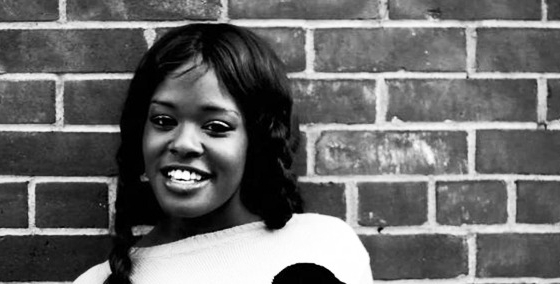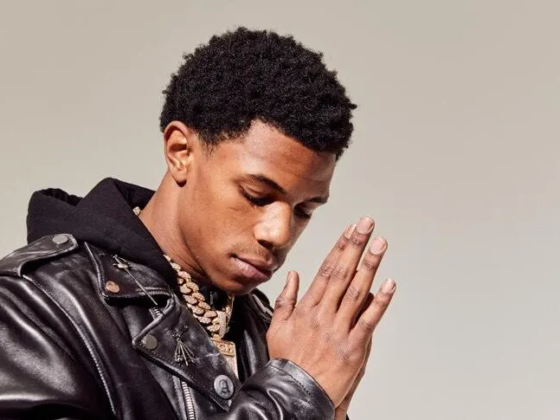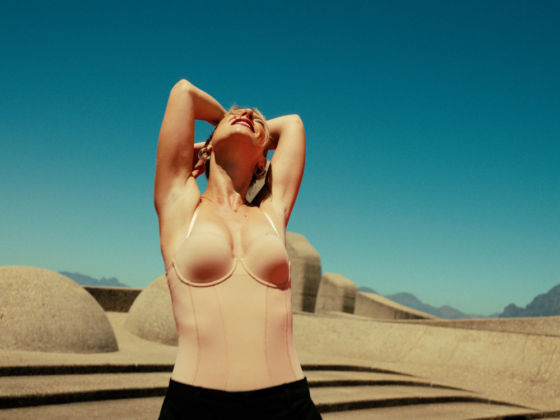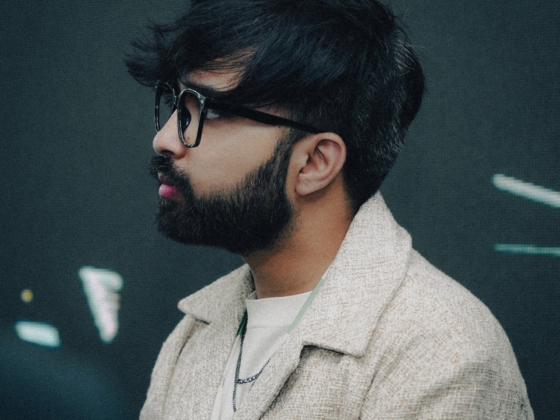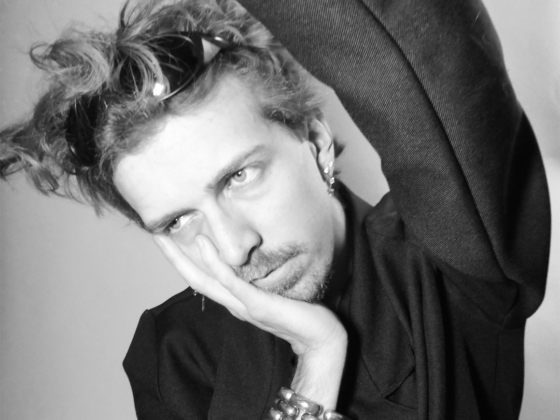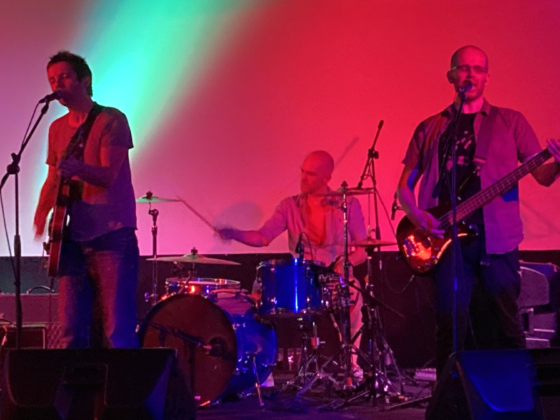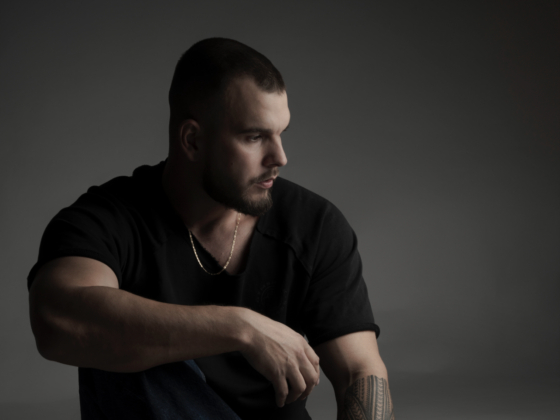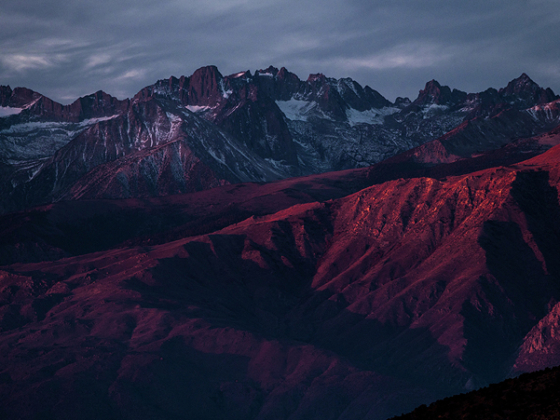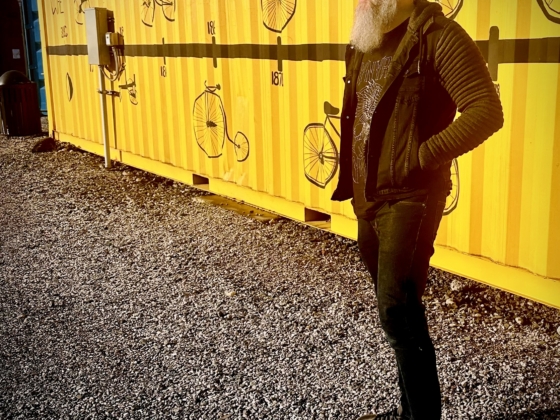In the business world, one of the most important things a business person can do is be able to sum up their skills and ideas in a succinct, compelling summation. Forget Powerpoint presentations, laser pointers, fresh-pressed business wear: if you can't sell yourself in a quick conversation, and stand out amongst "the others," you've lost the attention of your client or superior almost indefinitely. The same concept applies directly to those in the music world. On the daily we are inundated with new music coming at us in our email inboxes, Twitter feeds and Facebook news streams. Particularly with DJs, the brand of music artists who remain relatively anonymous in comparison to their music, the need to make sure their first impression their best impression is crucial otherwise it may be their last.
Without completely eliminating the dirty work, we've found several DJs from around the world who we believe are worthy of your time. But you can't take them for granted, they're people with views about the music they create. We've interviewed them to see how they got into this trade, what inspires them, what pisses them off, what they've learned over the duration of their individual careers. Once you've read a bit about them, you can hear their elevator speech, an EARMILK exclusive mix they have made to succinctly represent their style and tastes. We're certain they won't fail to impress.
DJ Franchise – Elevator Speech
[soundcloud url="https://api.soundcloud.com/tracks/30608751" params="show_comments=true&auto_play=false&color=000000" width="100%" height="81" ]

We start with the San Francisco-based DJ Franchise. Franchise has made a name for himself beyond the Bay Area locale due to his resolute attention to detail and devoted love to Music with a capital "M". And all kinds of music at that. Never one to shy away from genre mixing, Franchise will teach you a thing or two about loving music when you realize you just listened to Goapele cover Kanye West and up next is TV on the Radio. Having headlined countless gigs with San Francisco's PST and Los Angeles' Dance Right, Franchise's work grants him the privilege of calling folks like Dallas Penn, Sake1 and Matthew Africa "friends". Not to mention he has DJ'ed alongside Shepard Fairey, Theory, Platurn, Doug E Fresh, and Mind Motion, as well as toured with Keys N Krates. A true hip hop fan at heart, Franchise can't help but go hard with this particular mix, involving nothing less than the best of the genre including everyone from Pharcyde to Biggie. Read on for our interview with Franchise and get your fill of all his work on his Soundcloud.
EM: How did you get into DJing?
DF: DJing started for me in my elementary school years. When I was four years old, one of my cousins in Fresno was becoming a DJ and I was amazed by what he was doing. Most DJs say they come from a musical love beforehand. My parents have video of me singing and dancing when I was two or three, whether it was it Bee Gees, Beach Boys, Marvin Gaye, Al Green. My cousin gave me a cheap Radioshack mixer, I was eight years old. I had that for years up 'til I was sixteen, I think. In high school, I started working with turntables, and then I started using two separate speakers in middle school. [DJing] has always been in my life. I was also doing house parties here and there. All the way to where I am now. I'd say I've been djing legitimately since I was twelve but have been perfecting it for the last eight years. I was 26 or 27 years old when I started making it a serious career. I before it was doing it occasionally but to say "I'm actually do this," as a weekly or monthly thing and try to promote a brand? That was all in the last seven years.
EM: As someone who does this for a living, when did it change from being a hobby to being a career you're passion about?
DF: DJing gives me a chance to use music. It's funny because whatever setting you're in sometimes you hear the music and the hater in you gets frustrated because you feel like you can do better. You just really want people to enjoy the music, especially if people are not. But it's not only what I want to hear. The greatest DJs or the better DJs who understand the craft, know that it's a menage trois to enjoy the music, the spirituality and the instinctual movement that goes with it. The best ones are the ones who understand that it's less about you and it's more about the crowd and playing music for that crowd. Some DJs hate requests but I think they're good: they give you a chance to interact with people. I think the technique, like yelling at you to play something, is not necessarily the best, but I do think giving requests is a part of that communication, whether it's a legit or worthy request, in the end it's about communicating with the people who are listening.
EM: Some DJs love getting into great debates about equipment. What's new, what is tried and true. What do you think about technology and turntabilism?
DF: I try to stay away from a lot of new technology debate and to me hip hop has always been a very technologically advanced genre. Maybe not as much as trance or electronica but for us to not embrace it is harmful to the culture. But at the same time, if we can move forward, great, but if not I don't think we should get into the debate between vinyl and Serato, etcetera.
EM: Growing up, who were the three artists you respected most?
DF: First and foremost is Public Enemy. My favorite album is Fear of a Black Planet. What PE did for me is that it articulated a sense of social consciousness, even though I'm Mexican, I understood the minority struggle they were thinking about, even in my own environment and life. There was a certain authority and passion that was very admirable to me. What was also intriguing to me was they were a complete package: their lyrics, brand, image. Flava Flave balanced the messages and the humor that came along with it. There are many lines and quotes that Chuck D said that I keep as mottos. There's a frame in my office at Berkeley that I framed that says, "Small chance a smart brother's gonna be a victim of his own circumstance." Modeling that built my social thinking and I think so much of my music comes from that.
If I had to go with a number two it would be Wu Tang Clan. They came out in '94 and they went into the 36 chambers and there was a sense of brotherhood amongst the original members of the clan that was so foreign to so many people. This is at a time when West Coast — I was living in LA — it was dominating everything! The Chronic, Warren G, Sir Mixalot. The sound was new to everyone, it was raw, gritty. Wu Tang used kung fu clips and they sound cultish but not everyone got it. They had immense use of slang and such a different sound, a new sound we hadn't heard before. It was work listening to them. It wasn't just laying the ruckus, it was like, "Wow these guys are dropping huge amounts of knowledge and life."
I would say the third would be Mary J. Blige. I don't know if it was a New York girl with an accent the sampling the attitude but there was something about MJB that I fell in love with. She was taking these hip hop beats and just singing so beautifully over them, sharing her hurt and struggle and trying to power through it. My favorite so far is "My Life", where she talks about drug use, ex-boyfriends, dealing with the new issues of celebrity but they were heartfelt. The way people look at Marvin Gaye's "What's Going On?" is the way I look at MJB's my life. It was a life changing album for a lot of people my age. I was there for the first day that MJB was dropping, I've always loved that she's one of the true honest soul musicians that isn't made by a label. Her music is spiritual and timeless, something people can connect to much more than to a brand or label.
EM: What is your favorite thing about DJing? What makes it redeeming?
DF: I think for me personally, it's satisfying because I get to challenge myself socially and personally almost every time I do it. I think the only people who can relate to this is are comedians — we have an idea of what we want to accomplish — you have a venue, you have a crowd but every time it feels different. There's this "on the spot thing" that you have to get used to. I grew up being used to structure. I think along with that it's really validating to feel when you like a song and to play it and structure it and present it in a way that other people received it and loved it too. When people come to me and ask what was the name of that song that they liked without knowing what it was, it's really easy to get a cheap reaction. It's like playing what's on the radio. But to venture out of that that well-known realm, that's something I love as a DJ. If I can give them 50 or 60% of what they have never heard, but are comfortable with, it is rewarding. I've been told a song I played became the anthem to their morning or their week or it was the song that saved them from having a bad night with their boyfriend or girlfriend.
EM: What is your least favorite thing about Djing?
DF: I think I share this with other DJs but maybe for other artists as well. It's knowing that [DJing] has to be industrialized or monetized. In order for you to pursue and grow with it, there is a struggle for a lot of artists generally. People who create things have to realize, "Wow, I can't just live off applause. There has to be a way to make this financially plausible." That's a challenge when you're a creative person, you have to balance where are [your] creative principles and being dogmatic. You have to have some business acumen, some insight into marketing to survive. Part of me wishes you could just make it a matter of making people feel good. As people who make art, I would do this for free if I was allowed to. But it's not going to pay the rent. You can't give the landlord a CD and be like, "Okay, there's my rent." There's a sense of liability to it all. That's where I decided to have two careers, one as an educator in my day job. It's a passion of mine, I love seeing the social and and academic impact of what I do but it allows me to have some autonomy in when I get to DJ I'm not selling out because I have to make rent, I can have some say in what I do.
EM: Having done this for years now, what advice do you have for inspiring DJs?
DF: The first is practice the other two are approach.
The first is struggle hard and find your voice. It's really easy to sound like everyone else. It means staying in your bedroom, playing mixes of other DJs and seeing what they do. Playing songs for yourself that you don't think anyone else will like that you love. Challenging yourself to find what you love and seeing how you can present it to others. That Muse Mix, I was really scared to make it because I have been known as a hip hop DJ but I really like LCD Soundsystem and Vampire Weekend. But know that I can't always play that in the club. And things dont always have to sit in the genre-less hip hop soul electronica sound that is my sound. You can blend Top 40 with other stuff .
The second is find your best/worst critic. Find someone who doesn't like your music and have them listen to it. Too many DJs have friends who tell them they sound good. That leads to entitlement. I have to thank my brother Dan. I would spend hours on a mix and play it for my brother and he would be like, "Eh, it's okay. That transition was a little sloppy." Your friends aren't going to tell you you made a whack mix. You need one or two people who say you can do better.
And the third I learned early on from DJ mentors: record your mixes and listen to them. You may feel it's really good and "Man, I rocked that," and when you listen to you realize, "Wow, that song smashed out the other," or "I totally dropped it on that one." Or the opposite can happen. In the beginning I scratched over a Dilla beat and I was just being silly but when I played it back I was like, "Oh wow, that sounds good." After recording it I realized, "Oh okay, that doesn't sound bad," and others who are my worst/best critics had said the same. It gives you the sense to know how good or bad you really are. Speaking of disillusion, I tend to liken my career as a DJ to many careers in media: there's always gonna be someone who's hot for that minute but you can go back and look at someone like comedians — Carlos Mencia and Dane Cooke, they were hot for a minute. Who are people you really remember? Steve Martin, Chris Rock, Eddy Murphy. They didn't want to be hot for a minute, their approach was not that. It was to be good throughout time. That's what I've learned from them, how to make mixes that don't sound dated, they can last through time. With all these new DJs coming out, there's always gonna be someone who's younger, making more money. That's why people hate on celebrity DJs. They're gonna die out. It's a fad. If a city or bar makes their business model on celebrity DJs, eventually a poor craft or talent will tank them. No one has made a career off being a bad DJ. What actors are to LA, DJs are to SF. I got on my game and I spent hours practicing week by week, listening to my own recordings sending them out to my friends and brother, asking, "What do you think about this or that?" Whether there were 10 people in the crowd, or 100 or 3000, I do my best because you never know who is in the crowd. I have to do my best because I expect nothing less.
EM: Sum up your Elevator Speech Mix.
DF: Most of them on their are remixes with a few originals. But for me as a DJ I wanted to put different versions of the original. I think there is a beauty to remixes and covers. I put in a Biggie, Jay Z, Pharcyde, Michael Jackson — some of my favorite artsts are in the mix. It goes from a a hip hop-y sound to a dance-y sound which I think is one what I am; I'm not a moody down-tempo person. I like to see people dance. The first half of the mix is the cool, head-bobbing kind of music then goes into this kind of dance mode with a little bit of Big Pun and a few soul samples where people who know hip hop can enjoy it for what it is. Like my Reintro Mixes which open with Maybach and end with Maybach, this opens with Jay Z and ends with Michael Jackson. Musically it's my favorite artists, mainly hip hop artists, and positive dance music.
Tracklist:
Keys N Krates – "CEO"
J. Period X B.I.G. – "In the Limelight"
TV on the Radio – "Will Do" (XXXChange Dancehall Remix)
Pharcyde – "Runnin'" (Philippians Remix)
Avila Brothers – "Soundsational"
Armand Van Helden – Hey Ya
Heavy D & The Boyz – "You Ain't Heard Nuttin' Yet"
Riot Earp – "Should I Care"
Melo & Jon Kwest – "Ecstasy"
Freqnik & WDRE – "Darlin' Baby"
De La Soul – "Breakadawn" (Jon Kwest remix)
Michael Jackson – "Remember The Time"



